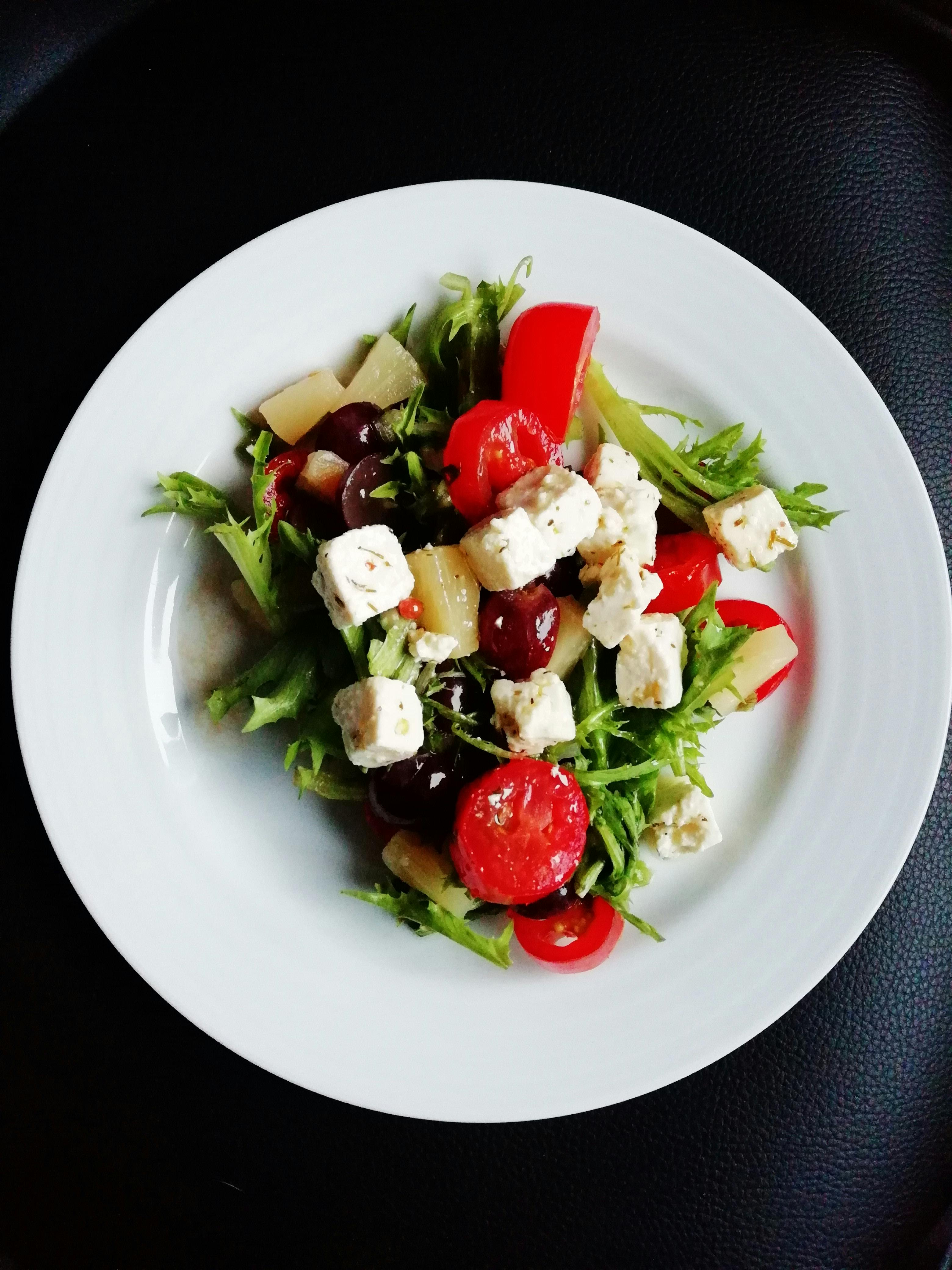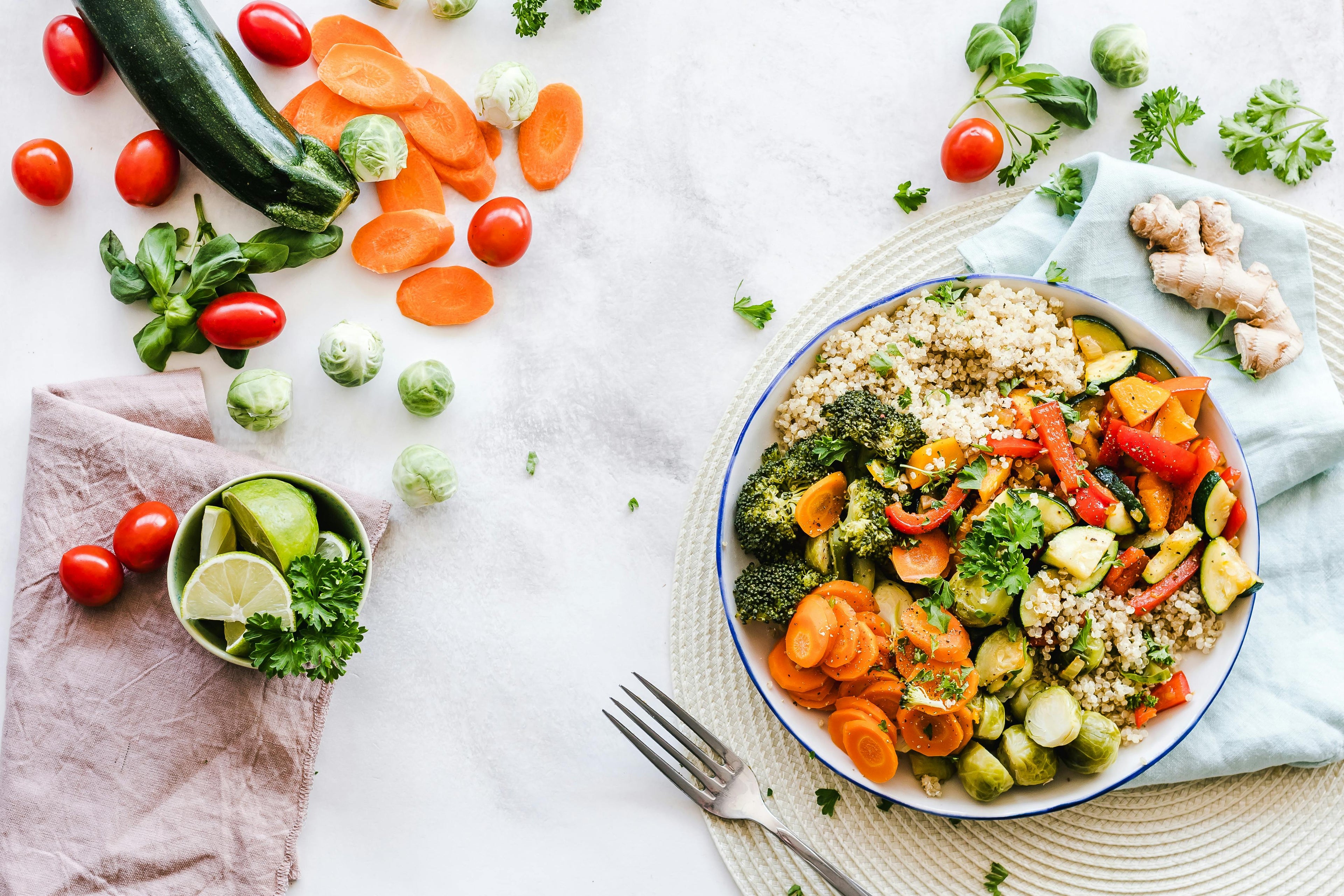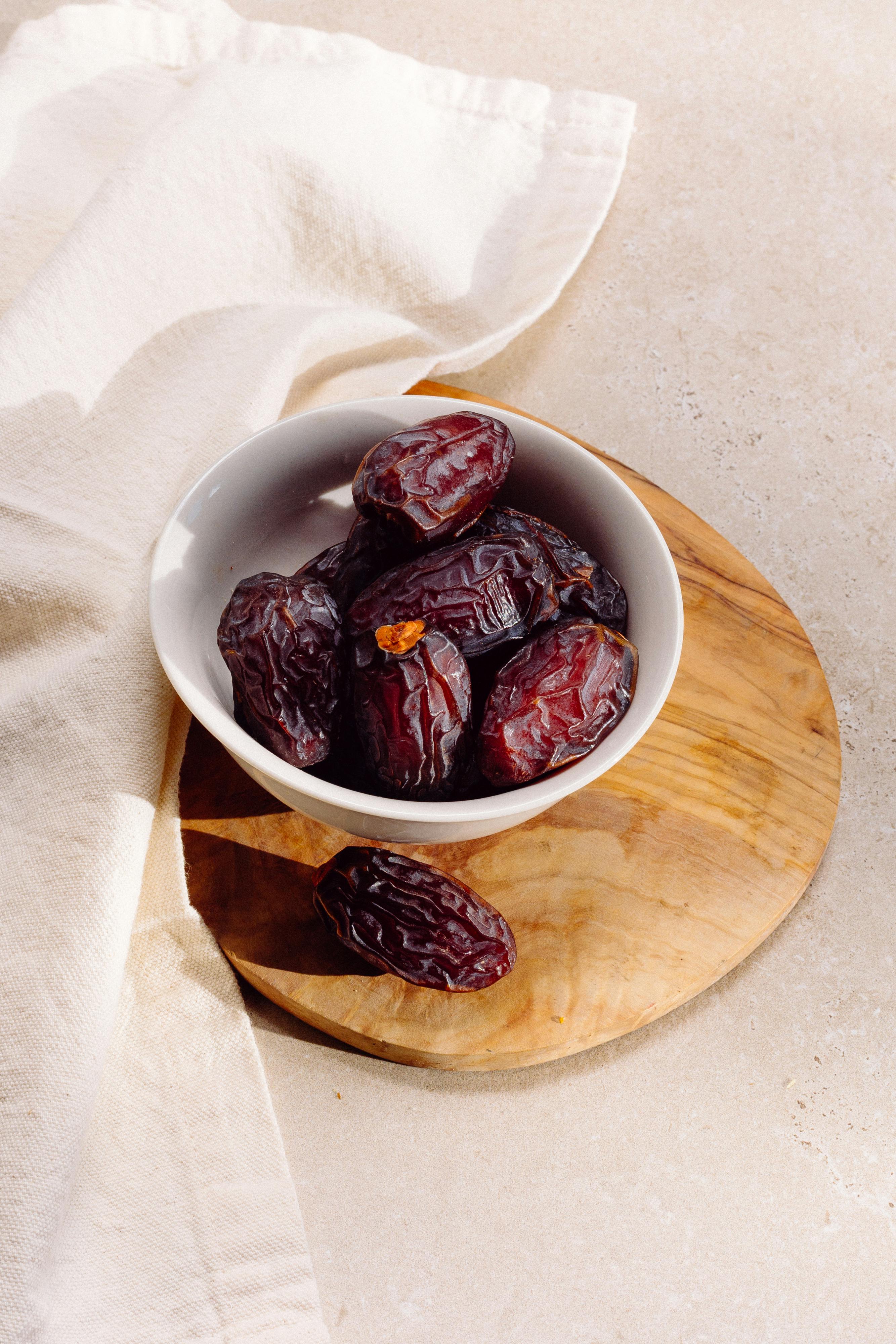Menopause can feel like a seismic shift in your body—weight gain around the middle, disrupted sleep, and energy that seems to vanish without explanation. These changes aren’t your imagination; they’re the result of hormonal shifts, particularly the loss of oestrogen, which affects everything from your metabolism to inflammation levels.
But here’s the good news: the right diet can make a significant difference. What you eat during menopause isn’t just about managing your weight—it’s about supporting your body through this transition, reducing inflammation, and protecting against long-term health risks like osteoporosis and heart disease.
In this article, you’ll discover how two diets—the Galveston Diet and the Mediterranean Diet—are tailored to the unique needs of women during menopause. You’ll also learn how key nutrients like fibre, protein, and healthy fats can help you feel more energised, improve your sleep, and reduce visceral fat. Ready to take control of your health? Let’s dive in.
Why Your Diet Is Key During Menopause

Menopause brings hormonal changes that affect nearly every system in your body. As oestrogen levels decline, your metabolism slows, inflammation increases, and visceral fat (fat stored around your organs) becomes harder to shed. These shifts can lead to weight gain, fatigue, and an increased risk of chronic conditions like cardiovascular disease and osteoporosis.
Your diet plays a pivotal role in counteracting these changes. The right foods can:
- Reduce Inflammation: Oestrogen is a natural anti-inflammatory hormone. When its levels drop, your body becomes more prone to inflammation, which is linked to joint pain, fatigue, and long-term health risks. Anti-inflammatory foods, like those found in the Mediterranean Diet, can help offset this.
- Combat Visceral Fat: Without changes to diet or exercise, visceral fat can increase from 8% to 23% during menopause. Diets rich in fibre and low in refined sugars help lower this type of fat and support overall metabolic health.
- Support Muscle and Bone Health: Muscle mass naturally declines during menopause, which affects your basal metabolic rate and insulin sensitivity. High-quality protein and key nutrients, like calcium and bioactive collagen, are essential for maintaining your musculoskeletal system.
- Improve Gut Health and Sleep: A healthy gut microbiome influences everything from your energy levels to sleep quality. Fermented foods and a high-fibre diet help feed good bacteria, improving gut health and reducing sleep disruptions.
With these changes in mind, let’s explore how the Galveston Diet and Mediterranean Diet address these specific needs.
The Galveston Diet
The Galveston Diet is specifically designed for women navigating menopause. Unlike traditional diets that focus solely on calorie restriction, this approach emphasises nutrition that works with your body’s changing needs. Here’s why it’s effective:
1. Anti-Inflammatory Focus
Inflammation is a key player in many menopause-related symptoms, from fatigue to weight gain. The Galveston Diet prioritises anti-inflammatory foods like:
- Leafy greens (spinach, kale)
- Colourful vegetables (peppers, tomatoes)
- Healthy fats (avocado, olive oil, nuts)
By reducing inflammation, this diet helps lower the risk of chronic conditions and makes you feel more energised.
2. Lowering Visceral Fat
A core principle of the Galveston Diet is balancing macronutrients—healthy fats, quality proteins, and unprocessed carbs—to stabilise blood sugar levels and prevent fat storage. High-fibre foods like berries, legumes, and whole grains slow glucose absorption, reducing visceral fat accumulation.
3. Hormone-Supportive Nutrition
The Galveston Diet ensures you’re getting enough protein to counteract the muscle loss common during menopause. By aiming for at least 1g of protein per pound of body weight, you maintain your muscle mass, which regulates your metabolism and supports insulin sensitivity.
4. Gut Microbiome Support
This diet encourages fibre-rich foods and fermented options like yoghurt, kimchi, and sauerkraut. These not only support digestion but also improve symptoms like bloating and help regulate your mood and sleep.
Sample Galveston Diet Foods
- Proteins: Salmon, eggs, lean chicken, plant-based options like tofu or tempeh.
- Fibre-Rich Foods: Lentils, quinoa, sweet potatoes, and leafy greens.
- Healthy Fats: Olive oil, avocado, almonds, walnuts.
- Fermented Foods: Greek yoghurt, kefir, kimchi, miso.
The Galveston Diet offers a sustainable way to reduce inflammation, protect your bones and muscles, and manage weight during menopause. But it’s not the only approach—let’s dive into the Mediterranean Diet and how it complements menopausal health.
The Mediterranean Diet
The Mediterranean Diet has long been celebrated for its heart-healthy and anti-inflammatory benefits, but it’s also a fantastic option for women navigating menopause. Rooted in the traditional eating patterns of countries like Greece and Italy, this diet emphasises whole, unprocessed foods that nourish your body and support long-term health.
1. Reduces Inflammation
The Mediterranean Diet is naturally rich in anti-inflammatory foods like:
- Healthy Fats: Extra-virgin olive oil, nuts, and seeds.
- Colourful Vegetables: Tomatoes, bell peppers, spinach, and aubergine.
- Omega-3-Rich Fish: Salmon, mackerel, and sardines.
These foods help combat the increased inflammation that comes with lower oestrogen levels, reducing joint pain, fatigue, and risk of chronic conditions.
2. Supports Cardiovascular Health
With menopause, women face an increased risk of heart disease due to hormonal shifts. The Mediterranean Diet’s emphasis on healthy fats, fibre, and omega-3 fatty acids helps lower bad cholesterol (LDL) and maintain a healthy weight, protecting your heart in the long term.
3. Boosts Gut Health
A healthy gut microbiome is essential during menopause, affecting everything from digestion to sleep quality. The Mediterranean Diet includes fermented foods (like yoghurt and kefir) and fibre-rich options (like whole grains, beans, and lentils) to nourish your gut bacteria and improve overall health.
4. Promotes Better Sleep
The magnesium-rich foods in this diet—like leafy greens, nuts, and seeds—are known to improve sleep quality, a common challenge during menopause.
Sample Mediterranean Diet Foods
- Proteins: Grilled fish, legumes, lean chicken, eggs.
- Healthy Fats: Olive oil, avocados, nuts, seeds.
- Fibre-Rich Options: Whole grain bread, quinoa, brown rice, beans.
- Fruits and Vegetables: Berries, oranges, tomatoes, spinach, and zucchini.
- Fermented Foods: Plain Greek yoghurt, pickled vegetables, and miso.
Both the Mediterranean and Galveston Diets offer excellent frameworks for menopausal health. Together, their principles, anti-inflammatory foods, high fibre, healthy fats, and adequate protein, lay the foundation for better energy, sleep, and overall well-being.
Essential Nutritional Guidelines for Menopause

No matter which diet you follow, certain nutritional principles are key to thriving during menopause. These guidelines focus on supporting your changing body, reducing inflammation, and improving overall health.
1. Prioritise Fibre
Fibre is a powerhouse nutrient for menopausal women, providing multiple benefits:
- Supports Gut Health: Feeds beneficial bacteria in your gut microbiome.
- Regulates Blood Sugar: Slows down the absorption of glucose, preventing spikes.
- Reduces Inflammation: High-fibre foods are packed with vitamins, minerals, and antioxidants.
How much to aim for: At least 25–32g of fibre daily.
Best sources:
- Whole grains: Oats, quinoa, brown rice.
- Vegetables: Broccoli, carrots, and leafy greens.
- Fruits: Apples, berries, oranges.
- Legumes: Lentils, chickpeas, black beans.
2. Get Enough Protein
Protein is essential for maintaining muscle mass, which plays a critical role in metabolism, insulin sensitivity, and bone health. Women often under-consume protein during menopause, with many getting only 50–60g per day when they actually need closer to 1g of protein per pound of body weight.
Why it matters:
- Prevents Muscle Loss: Muscle is your body’s metabolic engine, crucial for energy and longevity.
- Supports Bone Health: Protein works synergistically with calcium to keep bones strong.
Best sources:
- Animal-based: Eggs, lean meats, fish, and dairy.
- Plant-based: Tofu, tempeh, lentils, chickpeas, and edamame.
3. Embrace Healthy Fats
Not all fats are created equal. During menopause, healthy fats are vital for reducing inflammation and supporting hormonal health.
Best sources:
- Monounsaturated fats: Olive oil, avocados, almonds.
- Omega-3 fatty acids: Salmon, walnuts, flaxseeds, chia seeds.
Tip: Pair fats with fibre-rich foods for balanced, satiating meals that help regulate blood sugar.
4. Add Fermented Foods
Supporting your gut microbiome can improve digestion, reduce bloating, and even boost your mood. Fermented foods like yoghurt and kefir are rich in probiotics that promote good gut bacteria.
Best options:
- Plain Greek yoghurt, kimchi, sauerkraut, miso, and kombucha.
Bonus tip: Look for low-sugar options to keep inflammation in check.
5. Reduce Refined Sugars and Processed Foods
Refined sugars and processed foods spike blood sugar and increase visceral fat. Replace these with whole, nutrient-dense options to reduce inflammation and maintain steady energy levels.
Best swaps:
- Instead of sugary cereals, try oatmeal with fresh fruit.
- Replace white bread with whole grain or sprouted grain options.
6. Stay Hydrated
Water is essential for digestion, metabolism, and overall health. Proper hydration helps combat symptoms like dry skin and fatigue, which are common during menopause.
Goal: At least 8–10 glasses of water per day. Herbal teas and water-rich foods like cucumbers and watermelon also count.
Practical Tips for Implementing These Dietary Habits

Making dietary changes during menopause can feel daunting, but with a few practical strategies, you can create a sustainable routine that supports your health and fits your lifestyle. Here’s how to get started:
1. Plan Your Meals Ahead
Meal planning is one of the best ways to ensure you’re meeting your nutritional needs.
- What to do: Dedicate a day each week to plan meals and snacks that include protein, healthy fats, and fibre.
- Example:
- Breakfast: Greek yoghurt with fresh berries and flaxseeds.
- Lunch: Grilled salmon, quinoa, and steamed broccoli.
- Dinner: Lentil stew with leafy greens and whole grain bread.
2. Keep Healthy Snacks On Hand
Snacking can be an opportunity to nourish your body, not derail your goals.
- Hard-boiled eggs and avocado slices.
- A handful of almonds or walnuts.
- Veggie sticks with hummus.
- A small bowl of plain yoghurt with chia seeds.
Having pre-prepared options makes it easier to avoid processed or sugary foods.
3. Start Small and Build Gradually
If overhauling your entire diet feels overwhelming, start with one or two changes at a time.
- Focus on adding a serving of protein to each meal or incorporating more fibre-rich foods like whole grains and legumes.
- Gradually increase your intake of fermented foods for gut health.
Over time, these small shifts will become habits.
4. Practice Portion Control
Hormonal changes during menopause can make portion sizes tricky to gauge. Eating balanced meals with the right portion sizes can prevent overeating and manage blood sugar levels.
- Use a plate divided into thirds:
- Half for vegetables.
- One quarter for lean protein.
- One quarter for whole grains or starchy vegetables.
5. Stay Consistent with Hydration
Keep a water bottle handy and set reminders if necessary. If plain water feels boring, try herbal teas or infuse water with slices of lemon, cucumber, or mint.
6. Embrace Batch Cooking
Cooking in larger quantities saves time and ensures you always have healthy meals on hand. Prepare dishes like soups, stews, or roasted vegetables that can be stored and reheated throughout the week.
7. Track Your Progress
Monitor key markers of your health, such as your waist-to-hip ratio, energy levels, and sleep quality. Regular tracking can motivate you and help you make adjustments as needed.
Ready to Take the First Step?
Integrating these dietary habits might seem like a challenge at first, but remember—it’s about progress, not perfection. Focus on small, consistent changes, and you’ll build a diet that supports your health and well-being throughout menopause and beyond.
